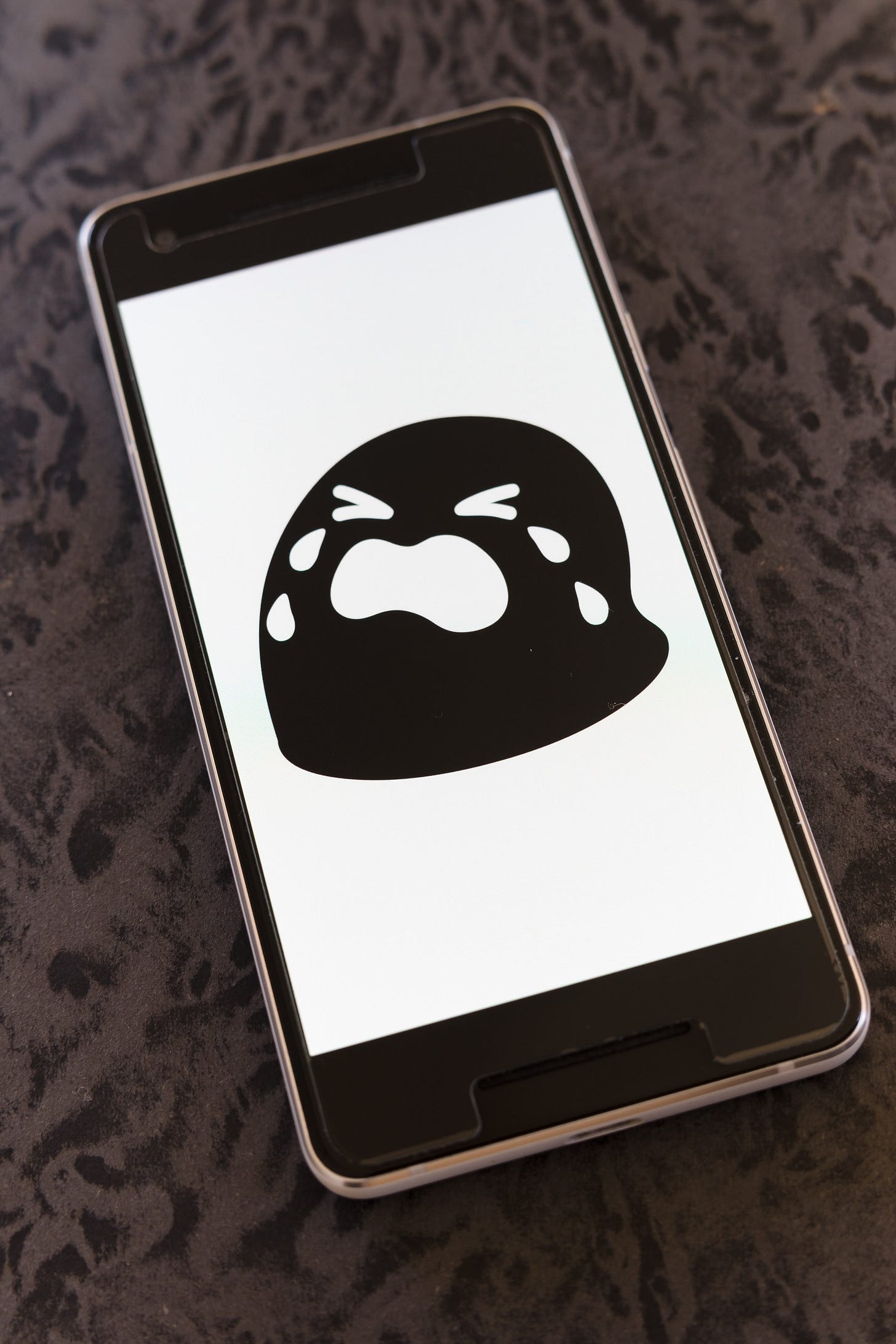Biden can end the tyranny of robotexting
Kill the "P2P" loophole
One thing I’ve noticed, to my great relief, since the election season finally ended (in Georgia) January 5th is the relative silence of my phone. At the height of the election season, the frenzy of unwanted robotexts seemed to keep it buzzing almost constantly. If I diligently followed the “block” instructions for each call, I would have spent at least a 40-hour workweek doing nothing but clicking the “info” button, tapping the phone number, then clicking “block number” for each [insert cussword here] message—there were hundreds.

Apple made it a bit easier by creating a category in their Messages app for “Known Senders” and “Unknown Senders.” The problem with that is that many of the services I (and likely, you) use could include messages by unknown senders. Like my dentist uses some service to nag the life out of me reminding me of an appointment; my pharmacy tells me when to order a refill, or when a prescription is ready; half the web-based portals I use require “checkpoints” with random SMS codes. That means I have to turn on notifications for every message, known or unknown.
There’s just no good way to filter out the good ones from the bad. And the bad messages just keep coming. I blame the government for this.
During the COVID-lockdown election cycle, many campaigns turned to robotext technology, many of which used a loophole in the FCC rules, which allow “P2P” text messaging, meaning agents send each message by pressing a button. In my mind, I see an army of work-from-home Homer Simpsons hitting the “any key” button over and over.
While FCC Chairman Ajit Pai has spend years pushing compliance with Congress’s TRACED Act that President Trump signed into law at the end of 2019. which requires phone companies to convert to IP networks and implement the industry’s STIR/SHAKEN protocol to limit robocalls, when it comes to text messaging, a pod of whales can swim through the agency’s loose net.
Phone providers must comply with the TRACED Act’s requirements by June 30, 2021, with a one-year extension given to smaller companies that have not converted to IP networks. But texting companies like Hustle merely have to show that the text is a “person to person” conversation. That means people like you and me, who check our phones on average every six seconds, can’t tell the difference between that buzz coming from our dentist or dog groomer’s automated messaging platform, and the one from the RNC (or the DNC for that matter), which uses thousands of different numbers to keep you from blocking them all.
The P2P Alliance is a group of companies that make a living flooding our phones with unwanted texts. They wrap their lobbying effort in techno-utopian language that they’re trying to protect consumers while enabling valid text interactions like appointments, confirmations, and other invited texts. What they’re really doing is celebrating the FCC ruling that allowed them to create an army of Homer Simpsons.
One thing Joe Biden can do when he takes office is pledge to end the tyranny of robotexting. The FCC needs to subject texting companies to the same regimen as phone providers. They should be barred from texting from numbers (or non-phone platforms like iMessage) that haven’t been registered and classified. Consumers should have the ability to block messages from non-registered senders, and perhaps have those messages shunted to email or some kind of digest for later action.
Companies that employ agents texting through centralized platforms (versus the agents' own phones) should not be able to access the SMS network as unregistered senders. The Biden administration should craft rules that would allow companies that operate SMS modems used to alert employees to various automated events to keep doing that without registering—those numbers are owned by the sender—while blocking large texting “P2P” companies from flooding our phones.
Of course, companies could easily get around restrictions by providing agents with their own phones, which send the actual messages. There’s nothing that can stop that, but new rules can make the difference between an economically viable message blast service reaching a million voters, and one that simply costs too much.
This last election was just too much for me, and it’s just going to get worse and worse. Unless government gives the TRACED Act teeth for robo texters, we’re all going to be consigned to thousands of unwanted political texts that go on forever.
If Biden wants to truly be a bipartisan hero, he can end the tyranny of robotexting.
If you haven’t subscribed to the Racket yet, click the button below to do so while it’s still free. And remember, with the Racket you get MORE than what you pay for!
You can also find us on Twitter and Facebook.
As always, we appreciate shares. If you see something here that you like, please send it to your friends and tell them that all the cool kids read the Racket!


